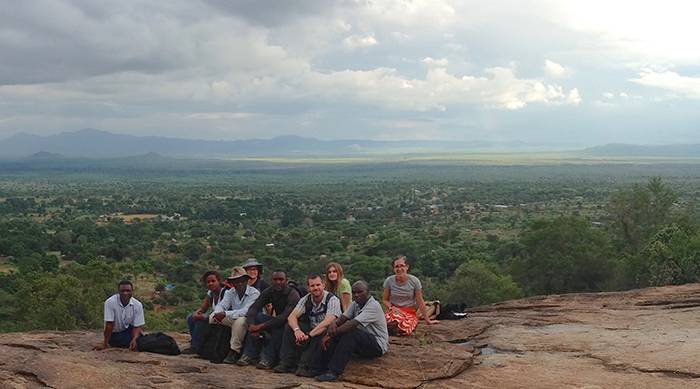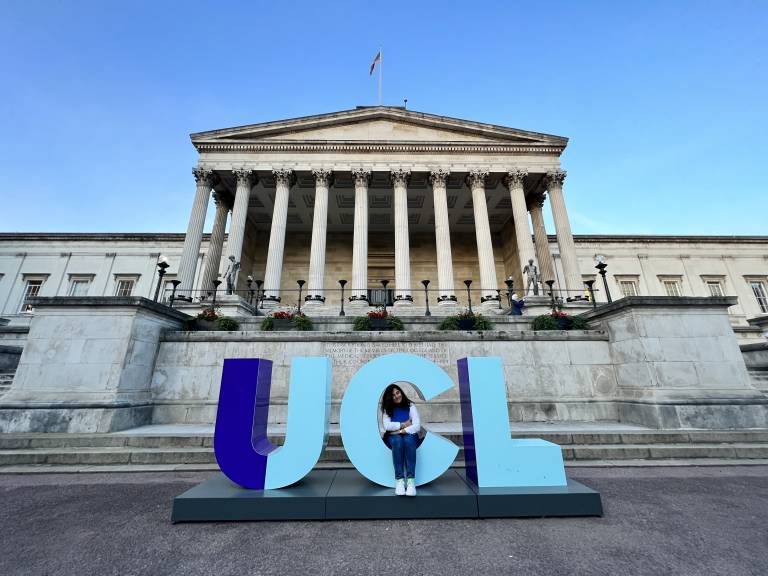When you join the Institute for Global Prosperity, you become a member of our exceptional group of ‘doers and thinkers’ across business, technology, entrepreneurship, policy, law and the environment.

About the course
We at the Institute for Global Prosperity are a community committed to advancing sustainable prosperity with a passion for entrepreneurial solutions and collective problem-solving. By joining our Global Prosperity MPhil/PhD, you will become part of a community of peers who stay connected with each other, offer each other advice, and share each other's successes throughout your careers.
Our MPhil/PhD students
2017-21 Global Prosperity PhD candidate Mara Torres Pinedo shares her experiences on our course:
“I was looking for a programme that could liaise to real-world problems from an interdisciplinary perspective. The IGP provided the flexibility to pursue a wide range of topics that converge in the idea of making a more prosperous future for communities around the world. The diversity of research interests and backgrounds from the IGP community creates a really thrilling environment and enriches professional debate and practice while maintaining a very close and caring community.

Learn more about our MPhil/PhD students through their profiles, theses, and experiences.
When to apply
If you wish to start on the Global Prosperity MPhil/PhD at the beginning of the academic year in October, you should bear in mind that many scholarship competitions close in January and February. To be competitive in these competitions, you need to be formally admitted to our course and spend time developing a competitive proposal. This means that you will need to apply 10 to 12 months before you apply for a scholarship.
If you have your own source of funding, you will have more flexibility with when you apply.
How to apply
Step one: Check whether you meet our admissions criteria
To study on the Global Prosperity MPhil/PhD, you will need:
- A minimum of an upper second-class UK bachelor's degree (2:1) and a master’s degree, or an overseas qualification of an equivalent standard in a relevant subject
- Relevant work experience
- A sufficiently strong and convincing proposal.
In exceptional circumstances where you have other suitable research or professional experience, you may be admitted without a master’s degree, and we may consider a lower second-class UK Honours bachelor's degree (2:2) (or equivalent) if you possess a relevant master’s degree.
Step two: Consider how your research topic relates to the Institute for Global Prosperity's three core themes and academic staff
To help you develop your research proposal, we encourage you to contact the member of academic staff that best suits your research interests at this stage. If you are unsure, please contact the PhD Programme Administrator. Please note that such contact does not necessarily mean that you will eventually be accepted. However, it does increase the likelihood of developing a strong research proposal that both you and your prospective supervisor are happy with.
Step three: Write your proposal
Your PhD research proposal is the central component of your application. We encourage you to invest significant time in making it as strong as possible.
Your proposal should:
- Consist of a target length of 2,000 to 2,500 words.
- Include your aims, core research questions, a discussion of the relevant theoretical literature you will contribute to and develop, the methodological approaches you intend to use, details of how the research will be accomplished practically and a concise bibliography
- Make clear the foremost scholarly discipline(s) you wish to contribute to, and the nature of your intended contribution
- Explain in detail how your research topic relates to IGP’s three core themes
- Include one or two sentences about how you intend to fund your degree (see step five below).
You may also wish to relate your proposal to one of our specific ongoing research projects.
Step four: Submit your application
When your proposal is finalised, you should submit it along with the email addresses of referees, transcripts and your CV. Full details of what is required of your application, including the link for submitting your documents, can be found in the UCL graduate prospectus.
The university will conduct a number of checks to ensure you are eligible to study at UCL. The department will then formally assess the application. While we aim to provide a decision within six working weeks of receiving a complete application and references, this may be longer due to other external factors. Ultimately, the UCL Graduate Admissions Office will contact you with an official, binding offer.
Step five: Secure your funding
Once your application has been formally accepted, you will now be able to apply for funding to support your studies on the Global Prosperity MPhil/PhD. We encourage you to look widely for funding opportunities and to discuss options with your prospective supervisor. A non-exhaustive list of funding opportunities are contained within:
Please note: Many funding opportunities have deadlines many months in advance of course start dates. Therefore, you should allow enough time to develop a competitive proposal, and for the subsequent assessment, when you apply.
 Close
Close

